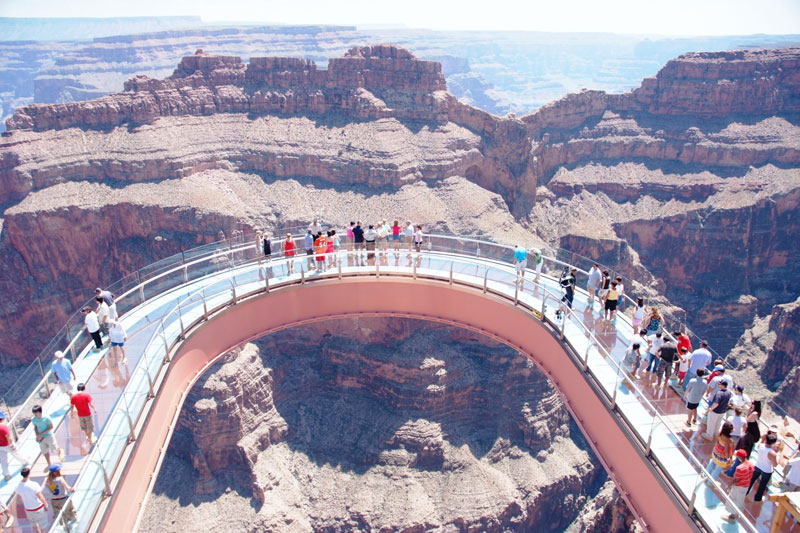5/27/2013 10:00:00 PM
Editorial in The Daily Courier
If you want to look straight down at one of the Seven Wonders of the World, be sure to take a wallet full of cash.

Photo courtesy of Hualapai Tribe
The glass-bottomed Skywalk at Grand Canyon West, a horseshoe-shaped bridge that juts out from the Canyon walls some 70 feet into pure, empty space, has seen its share of difficulties since long before it opened in 2007. The Hualapai Tribe, which owns and operates the tourist attraction, has battled forces both internal – factions within the tribe argued that the structure was defiling sacred ground – and external. Environmentalists believed the bridge was an incongruous eyesore and the original developer of the $31 million project, Grand Canyon Skywalk Development of Las Vegas, won a $28 million judgment against the tribe. The court agreed with David Jin, creator of the spectacle, who maintained that his contract called for GCSD to receive half of the attraction’s revenue in return for fronting the money to build it.
Shortly after the Skywalk opened, though, the tribe took it back from Jin’s company, claiming GCSD hadn’t finished the job. Jin countered by blaming the lack of completion on the tribe’s failure to provide infrastructure, and the back-and-forth ultimately resulted in the tribe’s choice to invoke eminent domain and seize the bridge.
The loss of the court battle earlier this year was a huge blow to the Hualapai, who have seen other business ventures fall by the wayside on their sprawling reservation south of the Canyon and west of the National Park.
This past weekend, a neighbor dealt the tribe another blow. Nigel Turner, owner of the 168-square-mile Grand Canyon Ranch, said he was tired of the tourists and the traffic that crossed his land on the way to the Skywalk, and that’s why he decided to start charging a $20 toll. For that fee, tourists, primarily those coming from Las Vegas, can enjoy a rodeo show and other ranch activities, but the already hurting tribe says the charge is inappropriate, based on a 2008 settlement that netted Turner $750,000 and gave the tribe an easement across his land.
Once again, the Hualapai and their ambitions seem certain to be headed for court in this dispute. It’s hard to say which side has right on its side, but it certainly begs the question of whether the tribe’s minority was right in objecting to the building of the attraction in the first place.
